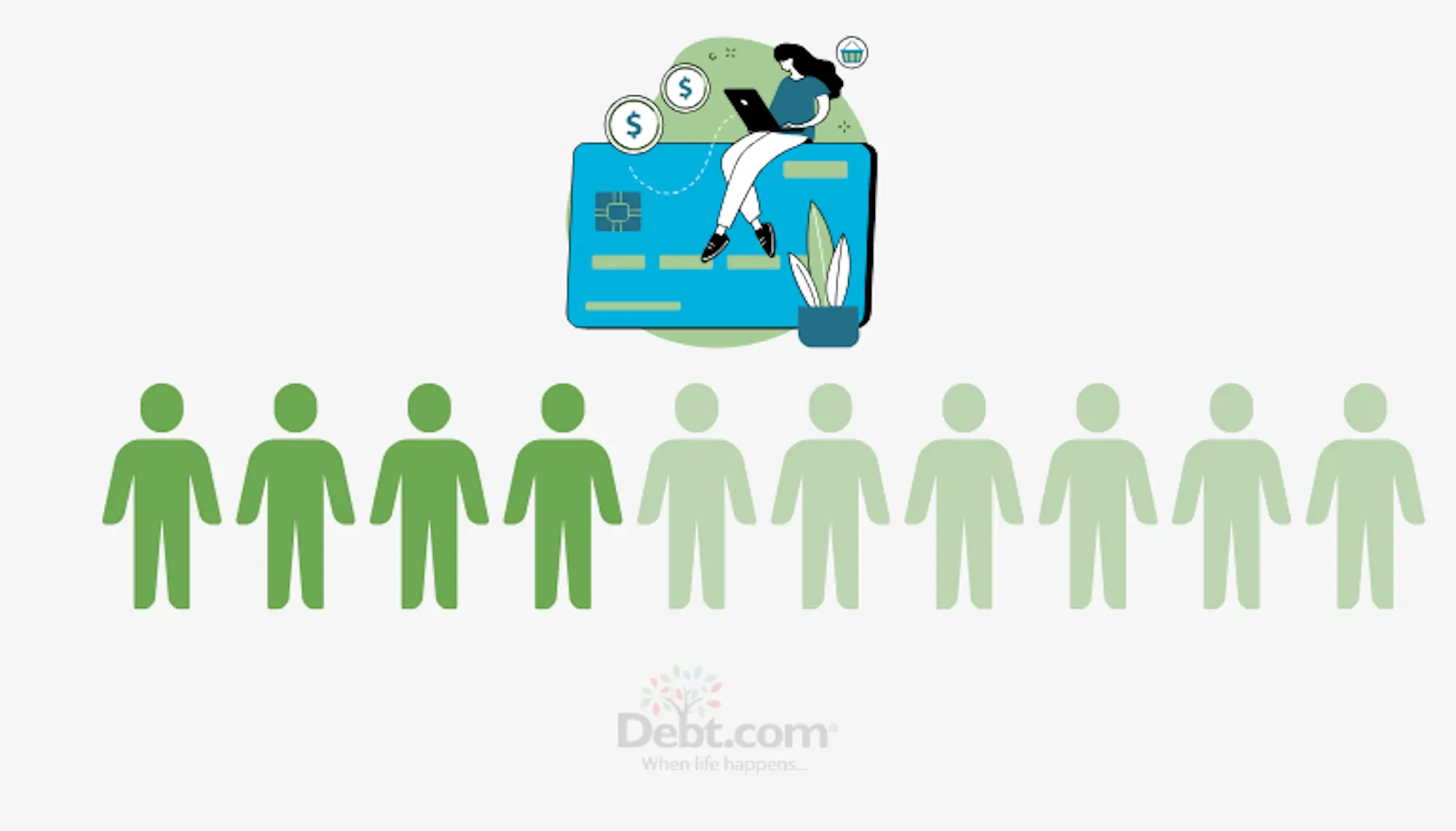
Economic News
Survey: 45% of Americans Rely on Credit Amid Inflation
A new survey highlights the link between continued inflation and how Americans are using credit.
About the survey results:
According to a Debt.com survey of 1,000 U.S. adults, a significant number of consumers are currently relying on credit. In fact, 45% of respondents cite inflation and price increases as the reason for their credit usage. Furthermore, 35% say they’ve maxed out their cards in recent years as a result of inflation coupled with rising interest rates.
Elsewhere, the survey found that 9% of those surveyed obtained new credit cards in order to cover emergency expenses. As to what those expenses were, the most common response was medical bills (65%) followed by appliance repair/replacement (52%), and auto repairs (44%). Job loss (28%) and funeral expenses (24%) were also mentioned.
As Debt.com notes, U.S. credit card debt recently reached a record high of $1.13 trillion. Asked how much they currently had in credit card debt, 52% of respondents pegged the figure as being between $500 and $2,499 while 28% had between $5,000 and $10,000. Unfortunately, 22% reported having between $10,000 and $30,000 in credit card debt. Looking even closer at the figures, 31% of respondents with between $10k and $20k in debt were Millennials as were 13% of those with $20,000 to $30,000 of credit card debt accrued.
What they’re saying:
Commenting on the survey’s findings, Debt.com chairman Howard Dvorkin said, “In today’s economic landscape, the surge in credit card debt is a stark indication of the financial strain faced by many Americans. With record-high debt levels and a significant portion of individuals maxing out their credit cards, it’s clear that households are grappling with unique challenges.”
Dvorkin went on to note, “Inflation and escalating living costs are forcing individuals to rely on credit cards as a lifeline. While credit cards can offer temporary relief, accumulating debt at a rapid pace is unsustainable and can lead to long-term financial repercussions. People need to exercise caution and seek alternate financial strategies to navigate these turbulent times.”
My thoughts:
While this isn’t the first time we’ve seen figures like this as they relate to credit and inflation, it’s disheartening to see that this is still a major issue for so many consumers. It’s also somewhat confusing as the economy at large continues to do well. Of course, while inflation did cool for a period, it has ramped up in recent months as the latest Consumer Price Index shows 3.2% increase over the past 12 months.
Overall, this report is another reminder that, while credit cards can be a useful tool, they can also cause financial damage. To that point, in addition to inflation, rising interest rates have hurt those with credit card debt as they are now paying more to carry a balance. For those currently finding themselves buried in credit card debt, hopefully their situations can soon change and allow them to escape this all-too-common trap.








